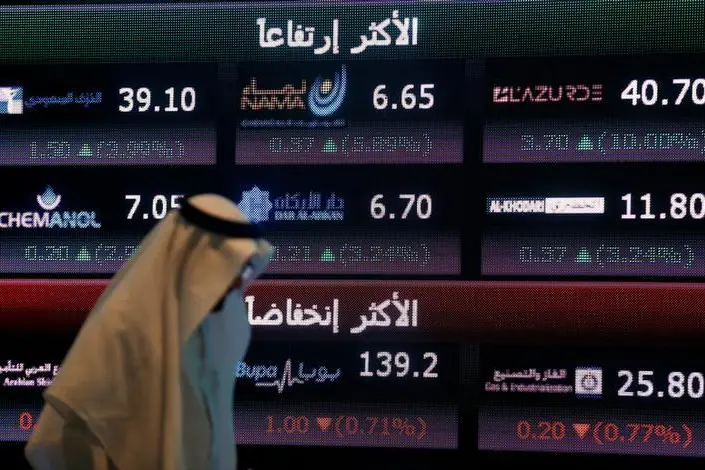PHOTO
Major stock markets in the Gulf were mixed in early trade on Monday as the risk of a wider conflict in the Middle East clouded sentiment in a week laden with data on U.S. growth and inflation.
Washington warned over the weekend of a significant risk to U.S. interests in the region as ally Israel pounded Gaza and clashes on its border with Lebanon intensified.
A recent surge in bond yields has tightened monetary conditions without the central banks having to do anything, allowing the Federal Reserve to signal it will likely stay on hold at its policy meeting next week.
Monetary policy in the six-member Gulf Cooperation Council (GCC) is usually guided by Fed policy decisions because most regional currencies are pegged to the U.S. dollar.
Saudi Arabia's benchmark index dropped 0.7%, weighed down by a 1.2% fall in Lumi Rental Co, while Yanbu National Petrochemicals Company retreated 2.7% after reporting a quarterly loss.
Elsewhere, Saudi Tadawul Group slid 4.9% after HSBC slashed target price to 109 riyals ($29.06) from 165 riyals, while bringing down its rating to 'reduce' from 'hold'.
In Abu Dhabi, the index eased 0.1%.
Oil prices - a factor for the Gulf's financial markets - fell more than $1 as concerns about supply disruptions eased due to diplomatic efforts to contain the conflict between Israel and the Palestinian Islamist group Hamas intensifying.
Dubai's mains share index added 0.3%, on course to snap a seven-day losing streak, driven by a 2.4% rise in toll operator Salik.
The Qatari benchmark gained 0.2%, with the Gulf's biggest lender Qatar National Bank rising 0.9%.
State-owned QatarEnergy said on Monday it would supply Italy's Eni with gas for 27 years, following similar deals this month to supply the Netherlands via Shell and France through TotalEnergies.
($1 = 3.7509 riyals)
(Reporting by Ateeq Shariff in Bengaluru; Editing by Janane Venkatraman)




















